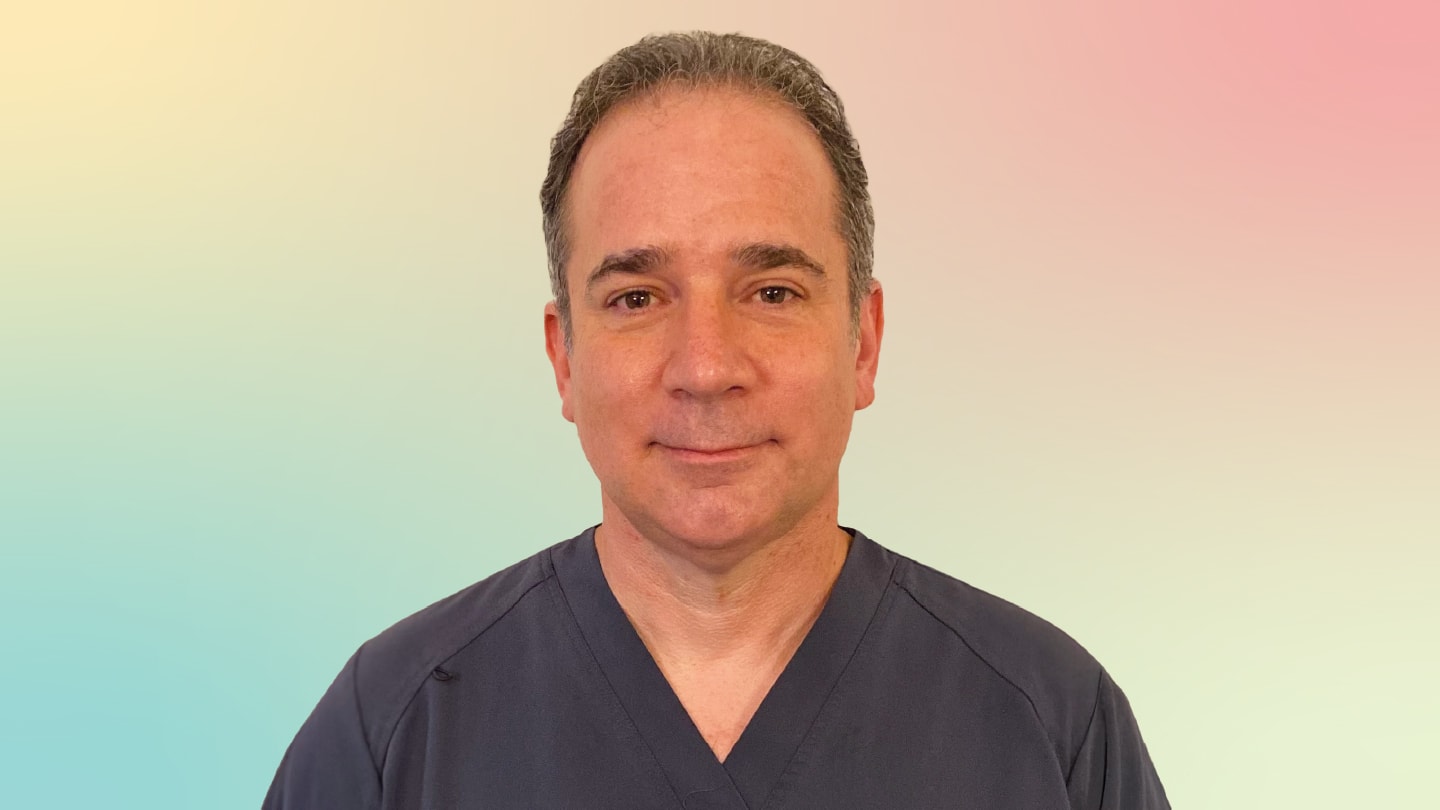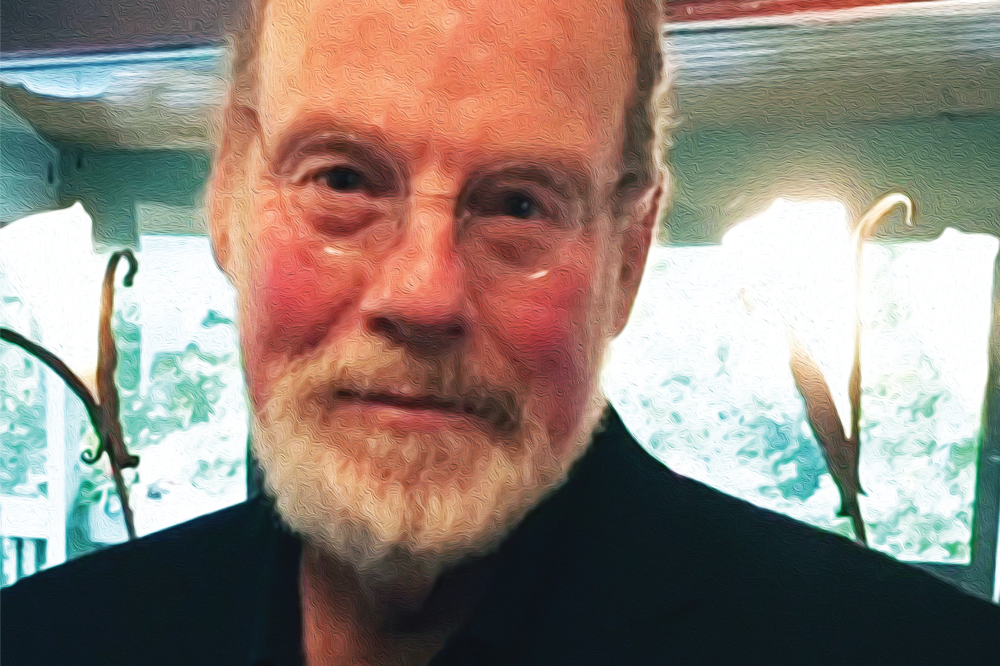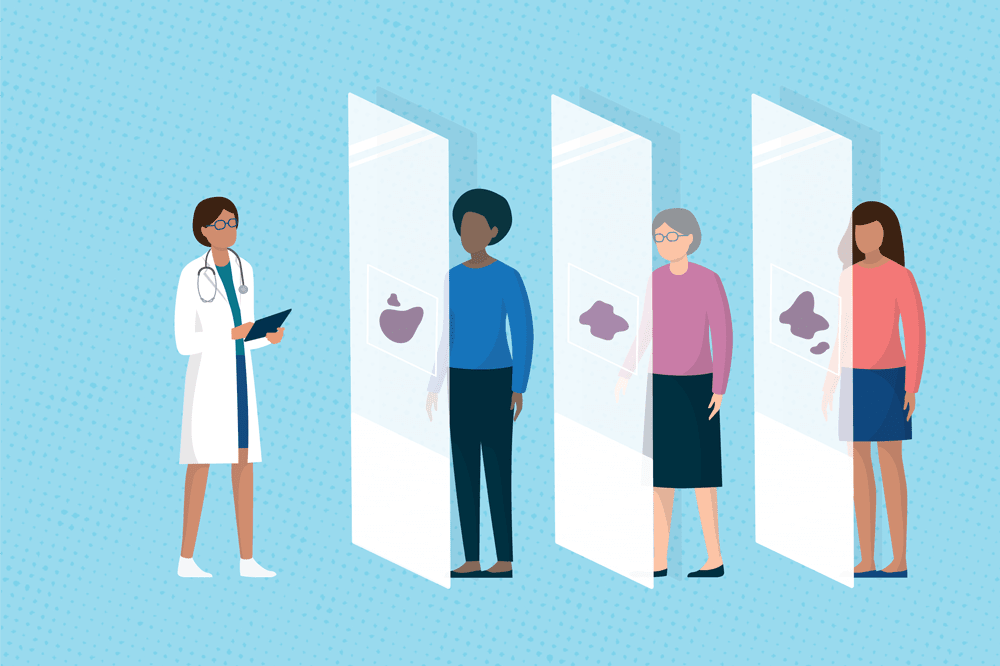From renowned textbook authors, to new-careerists with big ideas, and industry leaders with essential insights – Dennis Strenk has interviewed them all. His brainchild, the People of Pathology podcast, is now 6 years and 200-plus episodes old. It’s the podcast that does exactly what it says on the tin – and then some. In fact, we defy you to not find a conversation in the archive that piques your interest.
Keen to understand the secrets of its success, The Pathologist decided to flip the microphone and interview the interviewer. Here is what we learned about Strenk, his work, and his passion project.

What attracted you to pathology?
I really fell into pathology by accident. I graduated with a bachelor’s degree in biology, but couldn’t find work in that field. Eventually, I took a job as a laboratory assistant in the histology department in the hospital here in Milwaukee, with no real idea what I was getting into.
A lot of my job involved helping the pathologist’s assistant (PA), Janeen, with grossing – logging the specimen and processing details as she worked. But, in watching Janeen work, I began to grow interested in the grossing work itself.
By the time Janeen’s successor, Sandra, arrived, I had already begun training as a histotechnologist. But Sandra understood that I was interested in what she was doing, and she started teaching me how to process small samples. From gastrointestinal and skin biopsies, we moved on to medium-sized specimens like gallbladders and appendix.
When Sandra moved on, the pathologist, noting my interest, suggested that I train to become a certified PA. So, after three years’ on-the-job training, I took the exam, passed it, and have never looked back. I’m now 22 years into that career, and it’s been amazing.
What have been some of your career highlights?
Achieving my certification was definitely a highlight. Nowadays, the only way to qualify is through a two-year master’s degree. I was lucky to receive some great training that enabled me to take the exam – and pass it.
Another highlight was becoming involved with the American Association of Pathologists’ Assistants (AAPA). I started volunteering for them around 2007, and was eventually selected to serve on the board of trustees. Learning about the inner workings of the Association and how it connected with other organizations was very rewarding. I’ve actually just been invited to fill another vacancy, so I’ll be rejoining the Board for the next couple of years.
In my current role at Wisconsin Diagnostic Laboratories, I get to work with pathology residents at an affiliated medical college. That’s a new experience for me, and I’m enjoying it a lot. Our labs have also become a clinical site for a pathologists’ assistant program here in Wisconsin, so I’m now working with my first student PA, who’s doing the first rotation of her clinical year with us. That’s another highlight, for sure.
What is the biggest lesson you've learned during your career?
The biggest one has been learning how to talk to people and treat them well. I think that’s equally, if not more, important as technical skills.
In the lab environment, the assistants, histotechs, and pathologists all depend on each other. So if we can’t get along, it makes work difficult. I invest time in getting to know my colleagues and creating a bond with them. That makes it easier to create a sense of team and work together towards our shared goal of quality patient care.
In the absence of any formal training in people skills, I’ve acquired them by watching other people – and a lot of trial and error. But I could see those skills were important, so I worked hard, and now it has become second nature.
How did the People of Pathology podcast come about?
It started in 2019 after a conversation about podcasts with a friend, who is also a PA. In discussing the podcasts that we enjoyed, we realised that there were none (that we knew of) aimed at laboratory professionals. And my friend suggested that I start one.
Despite the idea being way out of my comfort zone, I started looking into it. I did some research into how to set it up, what equipment would be needed, and how much it would cost. It turned out that it was neither difficult nor expensive.
Then I just needed some inspiration. My friend said, “Well, you know, I’m writing a book. You can interview me about my book, for practice.”
So I got set up with software and a decent microphone, recorded the interview, and that became the first podcast.
How did you go about finding more interviewees and establishing a following?
After the first episode came out in December 2019, I started reaching out to people on social media who were doing something interesting or had a paper published, and inviting them to be interviewed on the podcast. To my surprise, everyone I invited said yes!
The more people I connected with, the more my network grew. And then it began expanding outwards, so that I could connect one guest to another to start a collaboration, or introduce people in training with guests who might be able to give careers advice – that sort of thing.
Now it’s a lot easier to find guests for the podcast because people are more likely to have heard of me, or to have been recommended by a previous guest.
What have you learnt about communication along the way, and how did you refine or change your approach to podcasting as a result?
It was certainly a steep learning curve, having had no previous broadcasting experience. The other complication was that making conversation with strangers was not something I found easy. In fact, I still don’t. I’m over 200 episodes in now, and I still get nervous before every one, with the pressure to build rapport and keep the conversation going.
I learned to refine my question style, making them more open-ended to invite a longer answer. And I learned to plan follow-up questions to help draw out a story with less talkative guests.
The other thing that helped me develop was working with a vocal coach. She helped me to work on my vocal tonality and tempo, and taught me how to add emotion into my voice. That was important because, in an audio-only format, I have to keep the listener interested using just my voice. Adding excitement or surprise into my delivery can really help create a sense of story within the interviews.
Other story-building techniques I learnt include the call back, when you refer to a previous comment, and the call forward, where you mention something you’re going to talk about later, as a teaser. I’m still working with the vocal coach once every couple of months, and still refining my techniques.
On top of all that, I had to learn about audio editing, writing show notes, social media promotion… And I'm constantly revising how I do all that stuff.
Do you have any favorite or particularly memorable interviews?
That’s difficult to answer, because I could find something memorable in every single episode – whether it’s special moments in the conversation, or experiments with format or question style. But the milestone episodes are important to me: Episode 1 with my friend, Alyse Gray, episode 50 with Rodney Rohde, the hundredth with Kamran Mirza, number 200 with Meredith Herman. They all felt like landmarks.
On a personal level, it was an honor to talk to Ralph Hruban, who wrote the grossing textbook that all PAs still use. Not only was it fascinating to talk to him about that, but he also came back on the podcast later to talk about a new book he’s writing.
On the subject of famous authors, Vinay Kumar, one of the main authors of Robbins & Cotran Pathologic Basis of Disease, had an amazing story to tell, which became a two-part special.
In episode 171 I spoke with Olivia Josephsen, another PA about shadowing during training. It’s a program requirement, but it can be difficult to set up, so we broke down the process: how to contact the PA, what to do during shadowing, and what’s expected afterwards. It turned into a really practical step-by-step guide, and it felt good to be doing something with such educational value in my field.
That, in itself, led to other episodes with an educational angle. And it also encouraged me to reach out to people in the diagnostic and technology industries about what they do, because it can be very eye-opening for my audience to hear those different perspectives.
To what extent has talking to people with varied roles given you a different perspective on any pathology issues?
I wanted to make the podcast because I’m excited about the work that I do. And I’ve found that it’s been easy to attract guests because they have a deep passion for their work too, and their enthusiasm shines through in the conversations.
However, I have noticed that a common theme among many of the conversations has been the lack of visibility of the laboratory medicine profession. That has shown me how impactful it is for people when they feel their work is unrecognized and misunderstood.
But mainly, talking to people with such a variety of roles within a field has highlighted that each individual is just part of a larger whole. Everything that everybody does is interconnected – from the laboratory assistant to the company making imaging software – it all affects the patient’s diagnosis and their care.
How important is social media as an educational platform for young pathologists?
I think social media is really good for connecting people – I use it every day for that purpose. And, while you can learn interesting things on social media, and it can point you to some great resources, it’s important to recognize that education is not the primary focus. Dedicated online educational resources can be more valuable, in my opinion.
Any tips for aspiring podcasters?
Some of the best podcast advice I've ever heard was to ask yourself, “Would I be doing this even if no one was listening?” And for me that answer is yes. As much as it makes me nervous sometimes, I love having these conversations. I love learning things and sharing them with other people.
I’ve always said I would continue making the podcast as long as I was still enjoying it. Well, I am still enjoying it, and the great thing is that I know people are enjoying listening to it.




